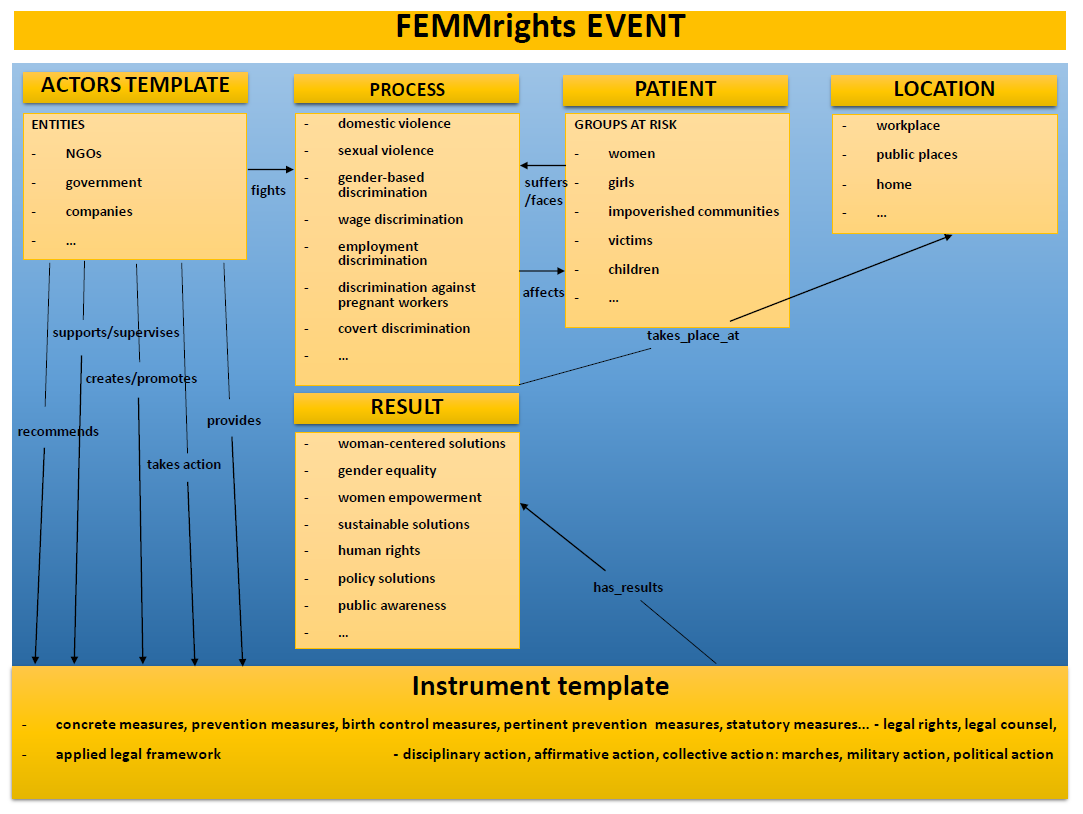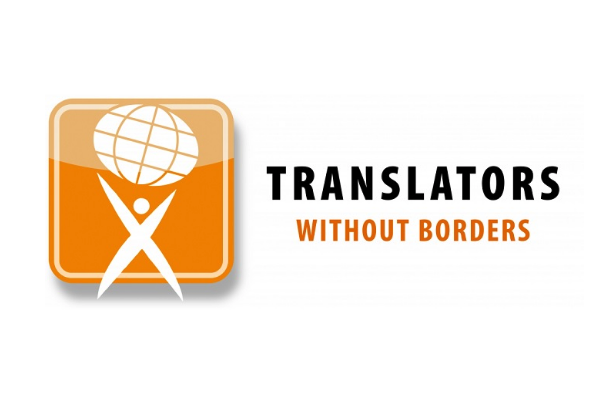FEMMrights Event
This database is based on the event “FEMMrights”. A cognitive terminology event is the framework within which elements belonging to a certain conceptual structure are stored in and extracted from our memory. The structure of the event was based on a previous analysis of the Linguistic Corpus of NGO presentation webpages and previous psycholinguistic experiences with specialized concepts. According to the results, the mental lexicon of women’s communities is organized in the form of “FEMMrights events”, which are prototypical and universal representations (i.e. not related to a specific language or culture) of how information is stored, as illustrated in the following screenshot:

TWB Glossaries

In humanitarian response, field workers must communicate important, sometimes life-saving information to those in need. In many cases, the critical link to ensuring affected people understand is the interpreter. However, too often, that link is broken, either because concepts do not translate well into the target language or because the interpreter does not have the tools to understand the concepts clearly.
TWB Glossaries are a tool to assist humanitarian field workers and interpreters working on responses across the globe. They aim to improve communication between aid workers and communities by providing clear and accurate translations of humanitarian terms in an easy-accessible offline format. With the built-in audio feature, you can also hear the words spoken aloud.
The TWB Glossaries provide a number of benefits. They standardize ways of translating and interpreting important concepts and terms, providing consistent, accurate, and easily understood words in local languages. They also help interpreters feel confident in their work and give the field worker confidence that the person with whom they are trying to communicate does fully understand.
TWB Glossaries cover subject areas that are relevant to affected communities in a variety of humanitarian responses. Themes include protection; housing, land, and property rights; and water, sanitation and hygiene (WASH). They were developed in collaboration with technical specialists and language partners.
Open for use by the entire humanitarian community, the glossaries are dynamic and can be expanded over time to include more terminology, subjects, and languages.
